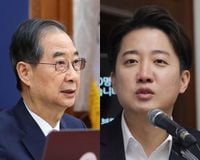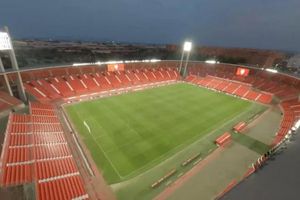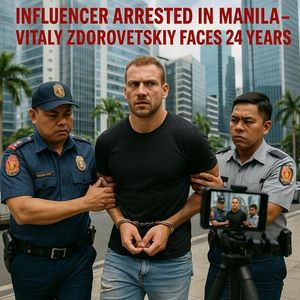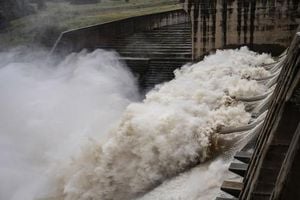Lee Jun-seok, a prominent political figure in South Korea, expressed skepticism regarding the potential for political dialogue with Han Duck-soo, the acting Prime Minister, during a visit to Korea Aerospace University in Goyang City on April 29, 2025. This statement comes in the wake of Han's recent resignation, which he undertook to pursue a presidential candidacy.
In a conversation with reporters after having lunch with students at the university, Lee was asked if he would be open to meeting Han should the latter reach out following his resignation. Lee responded, "I don’t think I would receive it specially because Han Duck-soo originally gave me contact information and bought me meals before." He elaborated that their prior relationship, which included personal interactions prior to the imposition of martial law, did not necessitate a special consideration for future communications.
Despite his past relationship with Han, Lee emphasized that if Han were to initiate a discussion about political unification, he would likely respond with pointed questions regarding Han's motives for such a choice. Lee stated, "If Han discusses unification, I might strongly question why he is making such a choice." This response underscores Lee's critical stance towards the feasibility of any collaborative efforts moving forward.
When pressed further about the concept of a 'big tent' coalition—an inclusive political strategy designed to unify various factions—Lee was unequivocal in his stance. He stated, "I have consistently maintained that I have no intention of participating in any 'big tents,' whether they are small tents, smoke tents, or gold tents." This statement reflects a firm commitment to his political independence and a reluctance to engage in broader alliances that may dilute his principles or policy positions.
Lee's comments highlight the current political landscape in South Korea, which is marked by fragmentation and the challenges of coalition-building. His refusal to entertain the notion of a broad-based coalition may resonate with voters who are wary of political compromise and seek clear ideological distinctions among candidates.
As South Korea prepares for the upcoming presidential elections, the dynamics between established politicians like Lee and those like Han Duck-soo will be critical in shaping the electoral landscape. Lee's candidacy represents a younger generation's approach to politics, emphasizing transparency and direct communication with constituents.
In the days leading up to the election, candidates will need to navigate these complex relationships carefully. The public will be watching closely to see how alliances form and dissolve in the run-up to the presidential race, and whether figures like Lee can maintain their positions without compromising their values.
Lee's remarks also reflect a broader sentiment among younger voters who are increasingly disillusioned with traditional political structures. They are looking for leaders who prioritize integrity and accountability over political expediency. This shift in voter expectations could have significant implications for the strategies employed by candidates in the forthcoming election cycle.
As the political environment continues to evolve, Lee's stance against a 'big tent' coalition could serve as both a rallying point for his supporters and a barrier to potential alliances that might strengthen his position. The challenge for Lee will be to galvanize support while remaining true to his principles, a balancing act that many politicians face in today's politically charged atmosphere.
Ultimately, the interactions and negotiations between Lee Jun-seok and Han Duck-soo will be pivotal in determining the direction of South Korea's political future. With the election on the horizon, both figures will need to articulate their visions clearly, appealing to a populace that is increasingly demanding change and authenticity in their leaders.
As the campaign heats up, it remains to be seen how Lee's firm stance will play out in the broader context of South Korean politics. Will he maintain his independence, or will he find common ground with other factions as the election approaches? Only time will tell, but one thing is certain: the political dialogue in South Korea is far from over.




